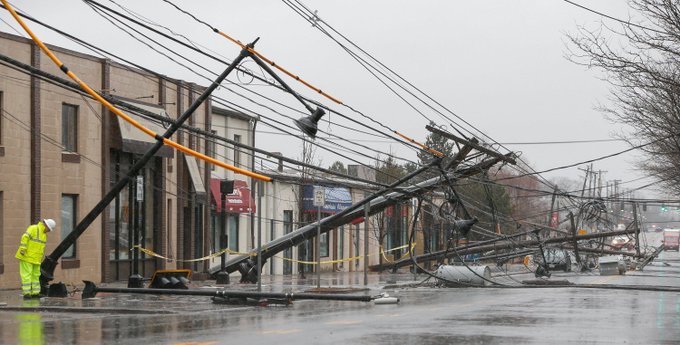National VOAD Members and Partners are currently responding to communities in need following landfall of Hurricane Ida on Sunday, August 29th. This storm will require a long-term response from our membership, and we stand ready to assist as long as there is need.
For more information on how our State/Territory VOADs are responding, you can contact them here.
Hurricane Ida Volunteer Tip: Be Patient, Do Not Self-deploy!
Get connected with an organization before you volunteer. Unaffiliated, self-deployed volunteers can create additional burdens on affected communities that pull resources away from survivors. For more information on volunteering, visit https://volunteerlouisiana.gov/disaster-services
Medical Volunteers:
- If you are a medical professional who wants to volunteer, you can register with the Louisiana Department of Health at https://www.lava.dhh.louisiana.gov/
How to help survivors of Hurricane Ida:
- Give cash, not stuff. Cash donations give organizations the tools they need to help survivors recover.
- Do NOT self-deploy. Get connected to an organization before you volunteer.
- Find information at https://volunteerlouisiana.gov/disaster-services
Hurricane Ida Donations Tip: Give Cash, Not Stuff!
Your cash donation supports disaster responders on the ground, keeping the focus on response and recovery instead of storage and sorting. Find donation opportunities on our website: https://volunteerlouisiana.gov/donate
IMPORTANT REMINDERS:
- If you are already affiliated with a response organization, please contact them directly. They will let you know when conditions are safe and when they will begin deploying volunteers.
- If you are not already affiliated with a response organization, you can sign up at https://volunteerlouisiana.galaxydigital.com/user/register/. We will keep you updated on volunteer opportunities and let you know when response organizations begin accepting additional volunteers.
- IMPORTANT: Volunteers must affiliate with an organization. Under no circumstances should a volunteer self-deploy to an affected area! Unaffiliated, self-deployed volunteers can create additional burdens on affected communities and can pull resources away from survivors.
Donate
While all donations are appreciated, CASH IS BEST. Our members are fully-vetted, experienced, and dedicated professionals who will get the most out of your generous donation. If you wish to make a financial donation, please select a National VOAD member here.
Do not send or bring unsolicited donations. In the early stages of the response phase, most organizations are unable to accommodate any material goods. Unsolicited donations create a challenge of storage and sorting when focus is needed on response and recovery.
Cash offers voluntary agencies the most flexibility in obtaining the most-needed resources. Many charities specialize in providing relief in disaster areas, yet they face significant financial barriers to getting their staff, equipment, and supplies into impacted areas.
Volunteer
National VOAD members respond to disasters in the United States and around the world. Register with a National VOAD member to volunteer. Find a complete list of National VOAD members HERE.
Just a friendly reminder to please BE PATIENT. You will be contacted once we have had an opportunity to assess the damage and identify unmet needs.
Seeing images of disaster may compel you to head to the impacted area. Don’t underestimate the complexity of working in a disaster area. Until a need has been identified and the local community impacted has requested support, volunteers should not enter.

